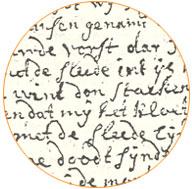|
|
|
Personal accounts, including memoirs, journals, diaries, autobiographies, and life histories, are important historical sources that help us understand the human condition.  Everybody has a personal history; every life has its share of joy and sorrow, victory and tragedy. These are the stories we tell about our lives that usually portray a larger picture of a life in historical context. In reading a personal account of someone far removed from your own culture and historical period, it is possible to learn about the foreign within the familiar framework of an unfolding life. The comparisons and contrasts between the lives of the reader and the subject inevitably spring to mind. Everybody has a personal history; every life has its share of joy and sorrow, victory and tragedy. These are the stories we tell about our lives that usually portray a larger picture of a life in historical context. In reading a personal account of someone far removed from your own culture and historical period, it is possible to learn about the foreign within the familiar framework of an unfolding life. The comparisons and contrasts between the lives of the reader and the subject inevitably spring to mind.
All personal accounts imply motivation on the part of the subject. A written document implies a certain level of literacy and an attitude of self-reflection. Orally recorded accounts require a vehicle of transmission, perhaps a scholar who records interviews with an individual. Sometimes oral interviews are recorded among family members or among people who share a particular cultural value, such as Appalachian mountain musicians. Sometimes an individual makes his or her own recordings or videotaped personal accounts.
Personal accounts can focus on particular events or may cover a life more completely. They sometimes involve recollections focused on extraordinary events such as participation in wars or catastrophic events, or explanations of unusual experiences. More recently, historians have begun to note everyday experiences as a measure of social order, so personal accounts can provide information on a particular “slice of life,” explaining the circumstances of coming of age experiences or the way of life in a specific region. Personal accounts have also been an integral part of oral history studies in regions that lack a legacy of written history. Many recent African histories rely on personal accounts to trace family and community connections.
In every case, the personal account is highly subjective, which is the basis of both its value and limitation. Personal accounts will not always be chronological; they are more likely to jump around, as our minds do, reflecting images of a certain experience from a variety of perspectives, even within one person’s own recollections. An eyewitness account of an event or time and place is invaluable, but it is also limited to one point of view. A personal account reveals only what an individual wishes to reveal and usually presents just one side of any story. Any personal account is but one of many stories that could be told about an individual, yet it is an important one that allows us access to a range of voices and perspectives.

|



